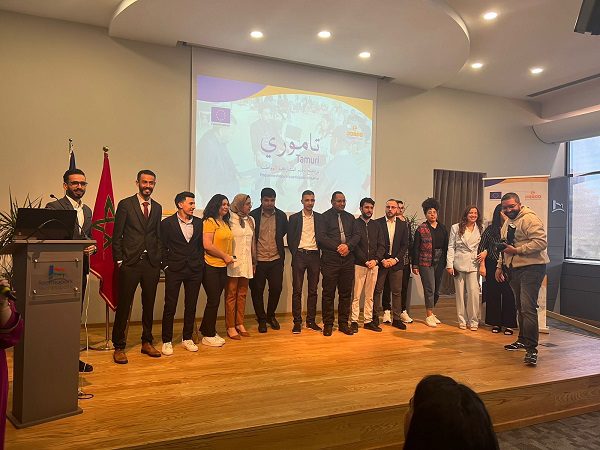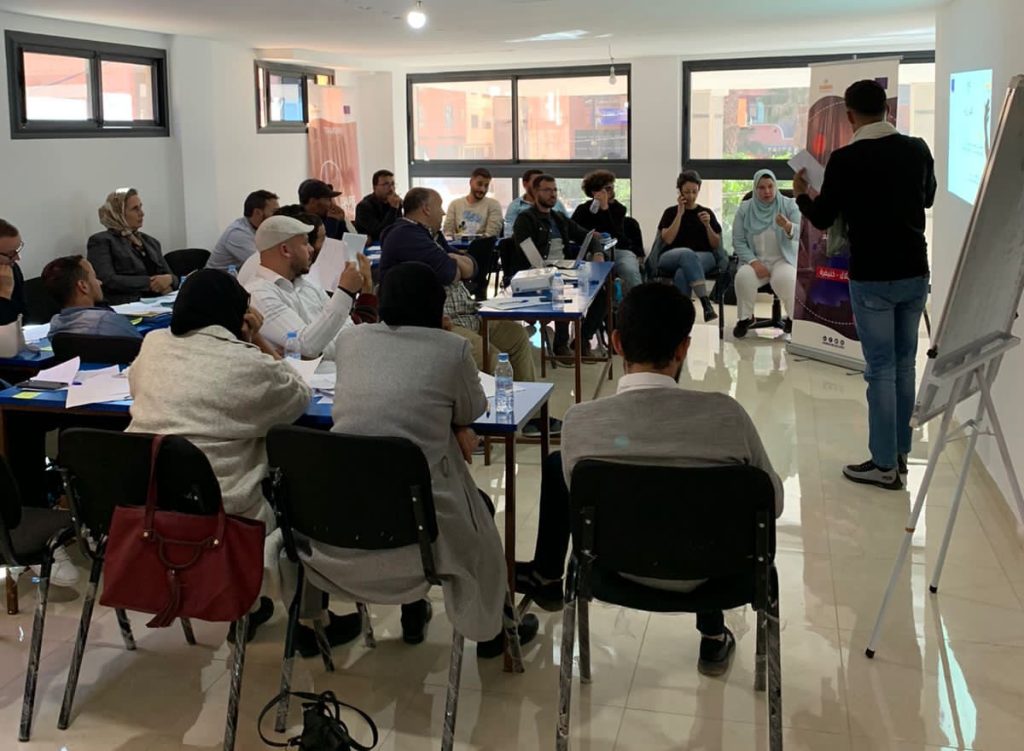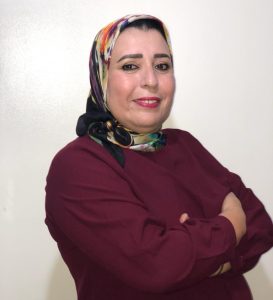TAMURI programme: Infusing Entrepreneurial Spirit into Moroccan Civil Society
The EU-funded TAMURI programme is leveraging entrepreneurship, innovation, and creative strategies to empower and uplift emerging initiatives and organisations in Morocco. Through tailored support and a focus on financial sustainability, TAMURI builds a bridge between entrepreneurship and civic engagement. Success stories such as ‘9abilaty’ and ‘Lovely Calligraphy’ illustrate the deep impact of TAMURI and show that it can be a catalyst for organisational growth and social change.

In Morocco, between the bustling streets of its vibrant cities and the tranquil beauty of its rural landscapes, a transformation is underway. It is characterised by the quiet determination of individuals who want to transform their society from within. This transformation is taking place through the TAMURI programme, a catalyst for change and a testament to the power of grassroots initiatives.
Picture this: A young woman in Casablanca, her eyes shining with determination, sets out to revolutionise maternal healthcare. In Souss Massa, nestled between the mountains and the sea, a visionary pedagogue brings the art of calligraphy to life and transforms it into a tool for empowerment. Each one is a chapter in the larger story of TAMURI — a programme that not only provides resources, but also ignites the spark of innovation, resilience and social impact.
Bridging Entrepreneurial Spirit and Civic Engagement
TAMURI aims to strengthen the associative system, which forms the backbone of civil society. TAMURI focuses on smaller organisations and initiatives on the budding ideas that need to be encouraged, on the informal and unprofessional entities that have great potential.
“The objectives of this programme,” explains Sophia El Bahja from the project team, “are multi-faceted. We not only want to strengthen the capacities of these emerging initiatives and civil society organisations, but also develop sustainable economic models and involve the actors in thematic network dynamics that stand the test of time.”
With a strategic focus on prioritised communities in five target regions in Morocco — Casablanca-Settat, Oriental, Souss-Massa, Tangier-Tetouan-Al Hoceima and Beni Mellal-Khénifra — TAMURI aims to impact the lives of 166,000 beneficiaries through 500 associations and emerging initiatives.
Sophia underlines the programme’s commitment to strategically address specific needs in order to promote the development of civil society. The goal is ambitious: 500 organisations representing the incubation pathway by the end of the project in 2025.

TAMURI’s Approach: Networking, Collaboration and Inclusivity
Basically, TAMURI takes the essence of start-ups and entrepreneurs and puts it at the service of civil society. It is about entrepreneurship for civil society organisations, recognising that while civil society organisations are not-for-profit, they manage resources to achieve sustainable impact. This programme is not just about external funding, but about fostering a mindset of financial sustainability in civil society.
“The whole process is like a journey,” describes Sophia. “It starts with a hackathon, a platform for innovative ideas. From there, we select initiatives and support them through bootcamps, mentorship and finally financial support.”
Networking events and thematic networks form the backbone of the TAMURI approach. These events, which are an integral part of the programme, serve as a connective tissue that links organisations and initiatives into a dynamic network of collaboration. “There is a kind of thematic network, like clubs,” explains Sophia. “These serve as forums for local challenges, with the results being passed on from the local to the regional and finally to the national debate. It’s a bottom-up approach to tackling challenges and proposing solutions.”
Unveiling the Impact of TAMURI
While the tangible long-term effects are still unfolding, TAMURI has already left its mark on the mindset and activities of the participating civil society organisations (CSOs). Sophia reports progress and change:
“The funding is a catalyst, but the real impact is seen in the structured activities, growing teams and profound organisational change. The incubation pathway and support, not just financial, have played an important role.”
She describes a fundamental shift in mindset. Civil society organisations that used to shy away from generating income are now accepting it as a means of supporting their charitable activities. The programme has broken old mindsets and ushered in a new era where financial sustainability is not only accepted, but also seen as an effective tool for social impact.
“Their work has become more diverse and they are thinking about expanding their activities. The bootcamps have changed the way they work — from informal structures to strategic planning and improved communication,” explains Sophia.
Success Stories enabled by TAMURI
The “9abilaty” project in Casablanca, which is being implemented by the Association Santé Et Developpement, is an excellent example of the concrete impact of TAMURI. The programme, led by Bouchra Kamal El Idrissi, aims to make maternal healthcare more accessible. 9abilaty guarantees pregnant mothers a quick consultation and check-up in a comfortable environment by offering pregnancy monitoring services at home.
By utilising digital connectivity, the concept reduces long waiting times by streamlining the appointment process. In addition to medical services, 9abilaty emphasises holistic wellbeing during pregnancy, changing the perception of maternal health. Bouchra’s project, which is supported by TAMURI, has been able to grow and become more sustainable.

The “Lovely Calligraphy” in Souss Massa, under the patronage of Al Yaraa Calligraphie, is another tangible success story of TAMURI. Launched by Mustapha Moulahid, the project aims to tackle the problem of poor handwriting in young pupils aged between 10 and 16. Students embark on a life-changing journey to learn calligraphy through a carefully crafted incubation programme that not only improves their writing skills, but also their academic performance and self-esteem. Under Mustapha’s guidance, calligraphy became more than just an artistic medium; it became an effective tool for self-realisation and academic achievement. With TAMURI’s support, Lovely Calligraphy fills a gap in the educational landscape of Souss Massa and is an example of the programme’s commitment to promoting innovation and social impact.

The EU-funded TAMURI programme (2022-2025) is a key component of the EU Citizen Participation Initiative in Morocco, supporting the country’s civil society. With its holistic approach, it not only strengthens organisations, but also fosters a mindset that enables civil society organisations to navigate the complex landscape of financial sustainability and social impact. The programme aims to support 500 CSOs by 2025, reaching 161,000 direct beneficiaries, such as members of CSOs benefiting from the project and participants in hackathons. There will also be 5,000 indirect beneficiaries, affected by actions carried out by CSOs and emerging initiatives typically having an incubation period.




























 Syria
Syria 


